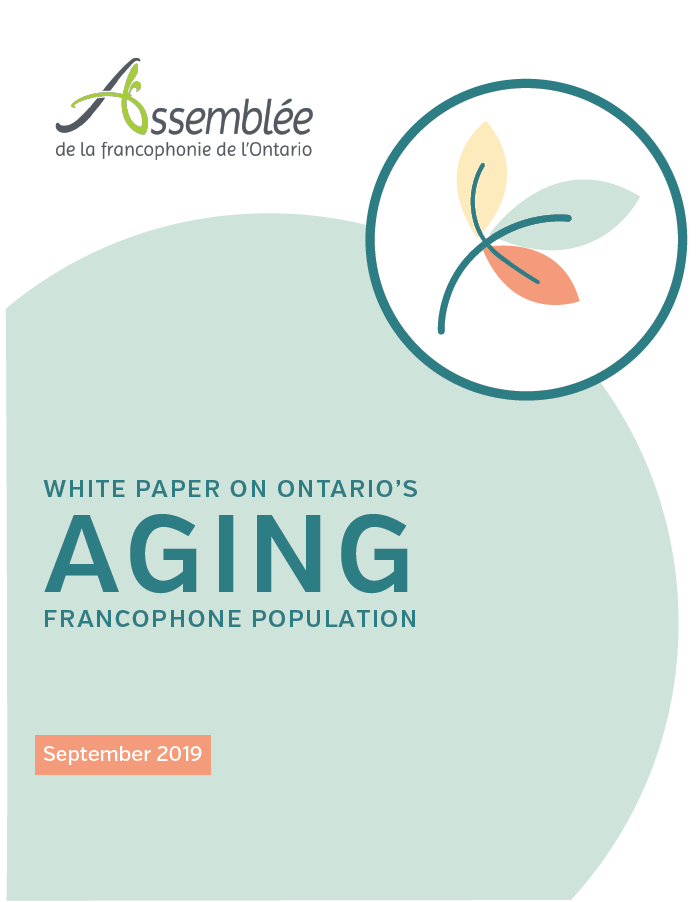 Collaboration between the AFO and the Fédération des aînés et des retraités francophones de l’Ontario (FARFO) made it possible to develop the present White Paper on Ontario’s Aging Francophone Population.(...)The goals of the process were as follows:
Collaboration between the AFO and the Fédération des aînés et des retraités francophones de l’Ontario (FARFO) made it possible to develop the present White Paper on Ontario’s Aging Francophone Population.(...)The goals of the process were as follows:
- To provide the Franco-Ontarian community with an understanding of the current situation,strategic issues and measures to be taken to ensure the implementation of winning strategies for Ontario’s aging Francophone population;
- Stimulate strategic thinking to raise awareness and engage in substantive dialogue with political and governmental decision-makers;
- Define the steps required to implement concrete changes and mobilize all the necessary community resources.
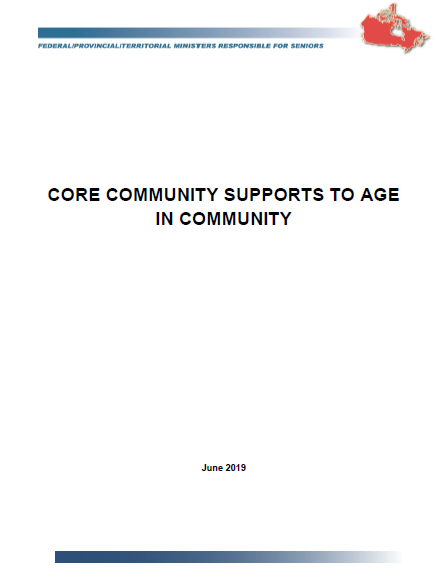 The purpose of this report is to inform policy reflection by providing information regarding how well older Canadians are served for the purposes of aging in place and community, by the home and community support services currently available. This will be achieved by:
The purpose of this report is to inform policy reflection by providing information regarding how well older Canadians are served for the purposes of aging in place and community, by the home and community support services currently available. This will be achieved by:
1. Describing the home care services, home supports and financial supports that help older adults age in place, as well as the roles and responsibilities of the federal, provincial and territorial governments in delivering them.
2. Determining how the needs of Canadians older adults aging in place are being met by identifying gaps, challenges, trends, best practices and innovative approaches in the provision of these supports.
3. Identifying best practices and innovative approaches used in Canada and internationally.
Source:Employment and Social Development Canada
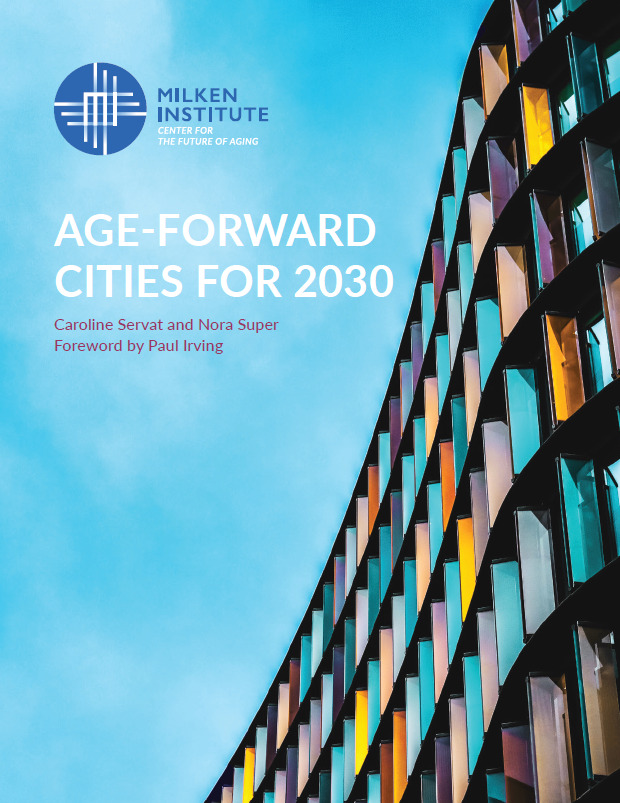 ''By 2030, about three out of every five people across the globe will live in cities, and older adults will generate over half of all urban consumption growth in developed countries. Artificial intelligence, robotics, and automation will displace millions of workers at a time when an increasing number of older adults need and want to remain in jobs longer. . Caregiving needs and a shortage of direct care workers will challenge communities across the world. Climate change will elevate the risks of natural disasters that disproportionately threaten older populations.
''By 2030, about three out of every five people across the globe will live in cities, and older adults will generate over half of all urban consumption growth in developed countries. Artificial intelligence, robotics, and automation will displace millions of workers at a time when an increasing number of older adults need and want to remain in jobs longer. . Caregiving needs and a shortage of direct care workers will challenge communities across the world. Climate change will elevate the risks of natural disasters that disproportionately threaten older populations.
The United Nations 2030 Agenda for Sustainable Development seeks to define new goals for people, the planet, and prosperity, and the World Health Organization (WHO) declared this the “Decade of Healthy Ageing.”
Against this backdrop, Age-Forward2030 challenges cities and communities to prepare for a new era of economic growth, inclusion, and resiliency. It seeks to meet city leaders where they are today and implores them to focus on the realities of tomorrow. It is a call to action to create a better future for all residents, investing in solutions that deploy the human and social capital of older adults as community assets, change agents, and co-creators.
Our goals? We seek to highlight new ideas and best practices and to galvanize conversation and action to promote shared prosperity. We want to be a resource to those building cities and communities that are vibrant, inclusive places to live for all ages. We hope that Age-Forward2030 will inspire action and change.''
Source: Milken Institute - Center for the Future of Aging
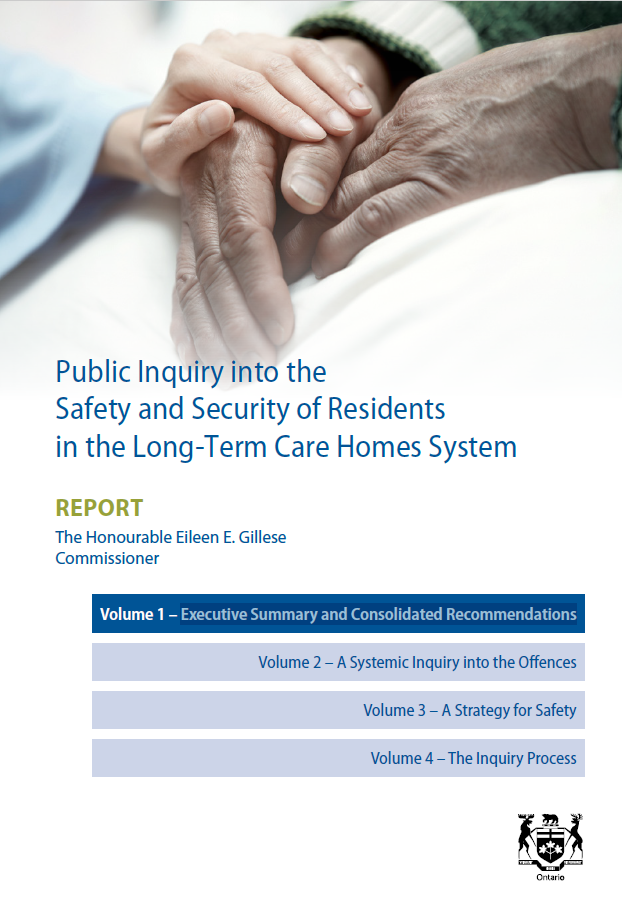 Vol 1 - Executive Summary and Consolidated Recommendations
Vol 1 - Executive Summary and Consolidated Recommendations
Report by the Honourable Eileen E. Gillese, Commissioner
"The Long-Term Care Homes Public Inquiry was established on August 1, 2017, by Order in Council following Elizabeth Wettlaufer’s conviction of eight counts of first-degree murder, four counts of attempted murder and two counts of aggravated assault; offences she committed while working as a registered nurse in Long-Term Care Homes.
The Inquiry’s mandate is to inquire into the events which led to the offences committed by Elizabeth Wettlaufer. Additionally, the Inquiry is directed to inquire into the circumstances and contributing factors allowing these events to occur, including the effect, if any, of relevant policies, procedures, practices and accountability and oversight mechanisms. The Inquiry is also directed to inquire into other relevant matters that the Commissioner considers necessary to avoid similar tragedies."
Also see: Public Inquiry into the Safety and Security of Residents in the Long-Term Care Homes System - Vol. 3 A Strategy for Safety
Source: The Long Term Care Homes Public Inquiry
The following is part of our project “Increasing Access to Justice for Older Adult Victims of Sexual Assault: A Capacity Building Approach”, funded by the Justice Canada Victims Fund.Learn more about this project or consult the full list of resources
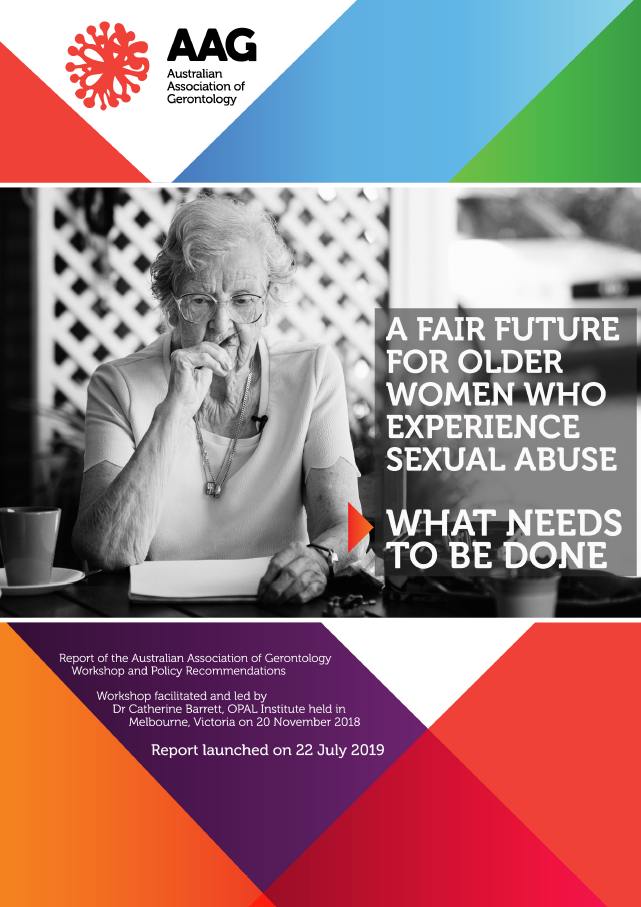 Report of the Australian Association of Gerontology
Report of the Australian Association of Gerontology
Workshops and Policy Recommendations
Workshop facilitated and led by Dr Catherine Barrett,
OPAL Institute held in Melbourne, Victoria, November 20, 2018
''There has been little focus on older women’s experience of sexual abuse despite research showing that:
- in 2016, 12,700 Australian women aged 55 years and over reported experiencing sexual violence in the last 12 months
- in 2017-18, there were 547 reports of unlawful sexual contact in residential aged care in Australia
This can partly be attributed to the misconception that sexual abuse of older women is rare. It is more accurate to say older women rarely report sexual abuse – because we do not listen or give them permission to speak about their sexual abuse.
This paper considers better ways to prevent and respond to the sexual abuse of older women at home and in residential aged care by:
- reviewing the policy and research context in Australia
- reporting on the outcomes of the AAG pre-conference workshop held in November 2018
- developing a list of policy recommendations to:
•assist governments to implement the National Plan to Respond to the Abuse of OlderAustralians and
• assist the Royal Commission into Aged Care Quality and Safety''
Source: OPAL Institute
Page 7 of 20

















